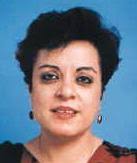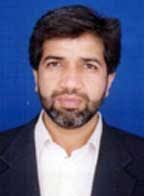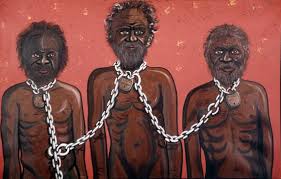


The show was planned for a large media group in Pakistan (Geo TV); the person's family was never adequately compensated, the media producers were offered an NRO by the Jang Group / Geo TV; and the news of this death was censored by the media mafia in Pakistan.
Here is an excerpt from an op-ed on Pakistani media's ruthless commercial orientation by Bina Shah.
Think ‘American Idol’, ‘The Apprentice’, ‘Fear Factor’: seemingly ordinary people are thrust into highly sensationalised but tightly controlled versions of real life, given ‘challenges’ or ‘tasks’ to overcome, and punished or rewarded for their performance. Audiences at home are invited to vote for the participants, and the result is a complete blurring of the lines between reality and fiction. Contestants may be asked to set up a business in one week, swap families for a month, or eat locusts and cockroaches in order to win a competition for their team. The contestant is a willing participant in his or her own humiliation for prize money, but it’s the advertisers who hand over the real money in this game.
Given how exciting life already is in Pakistan, you’d think we’d be immune to this kind of gimmickry. But our media thinks otherwise. In order to keep up with the worldwide trend and secure the accompanying advertising profits, local channels have begun to produce a slew of reality shows in the last few years, some ridiculous, others simply horrifying.
One example on the worse end of the scale is a show called ‘Living on the Edge,’ which appears on a Pakistani music channel and whose clips are freely available on YouTube. For the not-so-staggering amount of Rs 1,000, young men and women flock to the show’s auditions and beg to be allowed to perform a ‘dare’ while a sociopathic host screams abuse at the would-be contestants, especially women who dare to come dressed in western clothes or speak English. One unfortunate man, in his quest for fame, was filmed pushing a safety pin through his lower lip, while his hapless companion called his mother on air and begged permission to repeat the stunt.
This cringe worthy parade can be seen as mindless entertainment: the sardonic grin of the presenter as he screams ‘Rejected’, the stunned looks of disbelief on the contestants’ faces, the drama of security being called to drag away the troublemakers who can’t accept failure, all overshadow the actual performing of the ‘dare’ itself. But you’ve only got to look at the legions of youngsters desperate for a taste of fame to realise that this is one of the most unhealthy trends in an already sensationalist media with little to no standards of quality, taste, or safety. What exactly does this say about the emotional health of vulnerable young people? Where are the media standards, the watchdogs to make sure that our children are not being exploited by money-hungry producers and advertisers?
And let’s not forget that things can go horribly wrong. Saad Khan, a young Pakistani man took part in a reality show sponsored by a multinational company earlier this summer; he was flown to Thailand for filming what he must have thought would be the opportunity of a lifetime. One of the challenges thought up by the show’s creators was an underwater challenge, where contestants were asked to cross a waist-deep expanse of water while lugging a backpack filled with weights. Unfortunately, the 32-year-old man, a father of four and reputed to be an excellent swimmer, drowned in his attempt to perform the stunt successfully.
Filming was halted while the Thai authorities conducted an investigation; the media company producing the show for the multinational claimed that the stunt was tested, that competitors had signed waivers absolving the media company of all responsibility, and that all the other competitors completed the stunt safely. But the multinational and the mainstream Pakistani media broke their silence over the incident only after pressure from the online community, who asked hard questions about the incident in blog posts and online forums. Still, the multinational only issued a vague corporate statement about ‘rightness’ rather than addressing the questions raised by the young man’s death. Even worse, they have not addressed the legitimacy of reality television as a concept, and why exactly they felt the need to sponsor such a dangerous programme. People need to know the risks of participating in stunts for reality shows, at the very least, and corporate unwillingness to come through with an adequate explanation for their motives and procedures will leave countless others unaware and unprotected.
Where, again, are the media standards, the watchdogs to make sure that lives are not being destroyed by money-hungry producers and advertisers? Where are the people who can give guidance to our youngsters, to show them that there’s a world of difference between being brave for a good cause and risking their lives for no good reason? The young are reckless, and don’t always value their health and their safety, but surely there’s someone out there in the big bad world of media with a conscience who can give them all a much-needed reality check. And take that hideous show with the misogynist presenter who likes to scream at young girls and urge young boys to push safety pins through their lips off the air, please. This is not the kind of entertainment that we Pakistanis really need to see.
binashah@yahoo.com
Source
Read more...









































